Go back
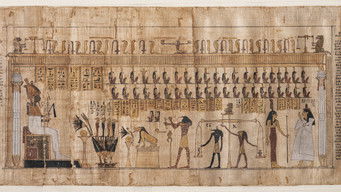
Lo splendore dei Faraoni
Episode number: 1
Overview: The Cairo museum is one of the most extraordinary places in the history of humanity: it houses the treasures of the Pharaohs. Thousands of objects recovered from the tombs: jewels, statues, works of art, sarcophagi. A priceless heritage that tells the story of almost three thousand years of Egyptian civilization. It is at the Cairo museum that Alberto Angela will be found to guide us on this journey into ancient Egypt: not only discovering the most precious objects of the Pharaohs (and their own mummies), but taking us to the most impressive places discovered by archaeologists. Thanks to special permits, Ulysses' crew was able to enter the tomb of Queen Nefertari, forbidden to cameras, to film the almost intact frescoes of this queen, Ramesses II's beloved wife. At night, the crew also entered the Pyramid of Cheops, showing the charm of these places.
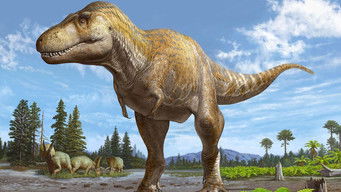
La straordinaria storia della vita
Episode number: 2
Overview: Ulisse tells the story of life on Earth. An exciting story, which scientists are slowly reconstructing. Alberto Angela will be in the famous Natural History Museum in New York, where millions of exhibits on evolution are collected: from meteorites to the first living forms, to mammals, passing naturally to dinosaurs. He will show the immense dinosaur skeletons displayed in the museum and the work of researchers both in the laboratories and in the field, particularly in Mongolia. The "Ulisse" team will also visit the Smithsonian Museum in Washington, where extremely rare finds and accurate reconstructions are preserved. Many films will allow you to retrace over 4 billion years of evolution: from the formation of the Earth to the appearance of Homo Sapiens sapiens.
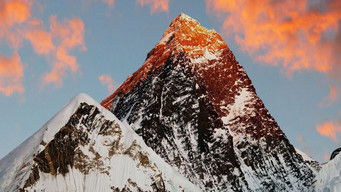
Everest, la grande sfida
Episode number: 3
Overview: Ulisse dedicates this event to the highest peak in the world: Everest. A RAI crew went to the Himalayas, in the Everest region, to show the extraordinary landscapes of this "roof of the world", flying with a helicopter to the base camp, at almost 6 thousand metres, and going to the Sherpa villages , who are still the great protagonists of climbing today, helping mountaineers in their very risky undertakings. One fact is enough to understand the difficulties of climbing Everest: for every 6 climbers who try, one dies. The difficulty is caused above all by the disturbances caused by the high altitude: above 8 thousand meters you enter the so-called "death zone". Oxygen is reduced to a third, the mind becomes clouded, the body is subjected to superhuman efforts, strokes and pulmonary edema are constantly lurking. Not to mention bad weather, wind, frostbite and the inherent risks of climbing. The program will tell all this, through documentaries, films and testimonies.
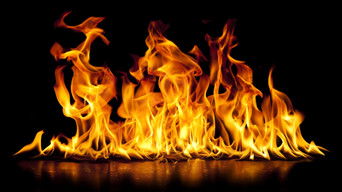
Il fuoco
Episode number: 4
Overview: Fire has been a protagonist of human history; from the first prehistoric fireplaces, born about 400 thousand years ago, to the flames of space rockets, it has always accompanied man in his daily life and in his undertakings. The episode also illustrates, above all, the risks that fire entails: fires, burns, explosions. And he will explain what are the best ways to fight it. In the house, in the car, wherever the flames develop. Alberto Angela travels to various places where fire is the protagonist, also following the special fire departments in their interventions and demonstrations. We will see spectacular images of fires and men intent on putting them out. We will talk about the chemistry of fire, the mistakes to avoid, and how to behave in an emergency. Many people, for example, have died trapped in the car due to failure to provide assistance: the fear that the tank will explode keeps many people from providing help when the car catches fire.
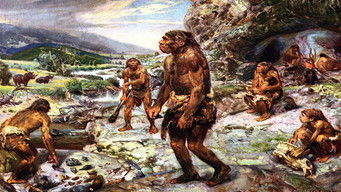
Neanderthal, un dramma di 35 mila anni fa
Episode number: 5
Overview: Ulisse offers his spectators a very particular journey: a journey through time, to closely observe the life of a group of Neanderthal men. Thanks to careful studies, a group of scientists and filmmakers have reconstructed the appearance and way of life of these prehistoric men who inhabited Europe for a very long period, between approximately 100 thousand and 30 thousand years ago. We will therefore have the opportunity to follow the group life, the hunting, the affections, the daily problems of a small tribe of Neanderthals, played by actors whose faces have been reconstructed following the most recent research. A day 35 thousand years ago, recalled in all its details, from food, to homes, to births, to diseases, up to the dramatic encounter with Homo Sapiens sapiens, who migrated to Europe from Africa in that period.

Diamanti, perle e oro
Episode number: 6
Overview: This episode of Ulisse is dedicated to the most extraordinary jewels in history, and everything behind them: technique, art, nature. The episode takes its cue from the largest diamond exhibition ever held: in fact, some of the most famous jewels from museums and private collections have been brought together at the Natural History Museum in Paris. Necklaces, brooches, solitaires, tiaras, worn by queens and kings of the past, when even men adorned themselves with jewels. The particular venue of the exhibition, a Natural History Museum, will allow us to talk about the origin of diamonds, which are formed beyond the 120 kilometers of the Earth's depth, at pressures of over 10 thousand atmospheres. We will see how diamonds are also formed in space: a meteorite studded with microscopic diamonds is on display at the exhibition. Ulysses will then show how diamonds are cut, going to one of the most prestigious laboratories, and how they are extracted from the earth today.
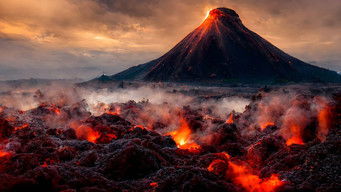
Nell'inferno dei vulcani
Episode number: 7
Overview: The earth floats on a sea of fire: the thin layer of the earth's crust, in fact, rests on an incandescent magma which every now and then finds chimneys to shoot out its fiery splashes: volcanoes. The entire planet is crossed by large fractures, along which volcanoes nestle. Ulisse, through a series of films and documents, will show the most extraordinary images of eruptions all over the world: from South America to Japan, from Africa to Canada, and of course Europe. Alberto Angela went, among other things, to Iceland, a large island that emerged from the sea, millions of years ago, following a gigantic eruption, and which is still today one of the most active volcanic areas: a third of all the lava material erupted in the last 500 years in the world is found in Iceland. A land where hot water springs now power the heating of homes and even greenhouses, where bananas are grown (and we are at the Polar Circle).
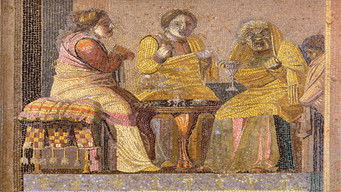
Pompei, conto alla rovescia
Episode number: 8
Overview: Would you like to live in Roman times? Ulisse gives you the opportunity, following hour by hour the typical day of the inhabitants of a Roman city: family life, work, business, love, entertainment, even elections. In fact, Ulysses reconstructs, with a "countdown", the last 30 hours of Pompeii and Herculaneum: while Vesuvius was charging for its catastrophic explosion, the people, unaware even of the fact that Vesuvius was a volcano, paid attention to the little things of every day. The program reconstructs this story with the help of accurate graphic processing and thanks to sequences played by actors, up to the explosion of Vesuvius and the violent death of the two cities, under millions of tons of lava material. Alberto Angela, who hosts the evening from Pompeii, recounts these 30 hours, also showing the "petrified" bodies of the inhabitants imprisoned in the lava while they were fleeing.